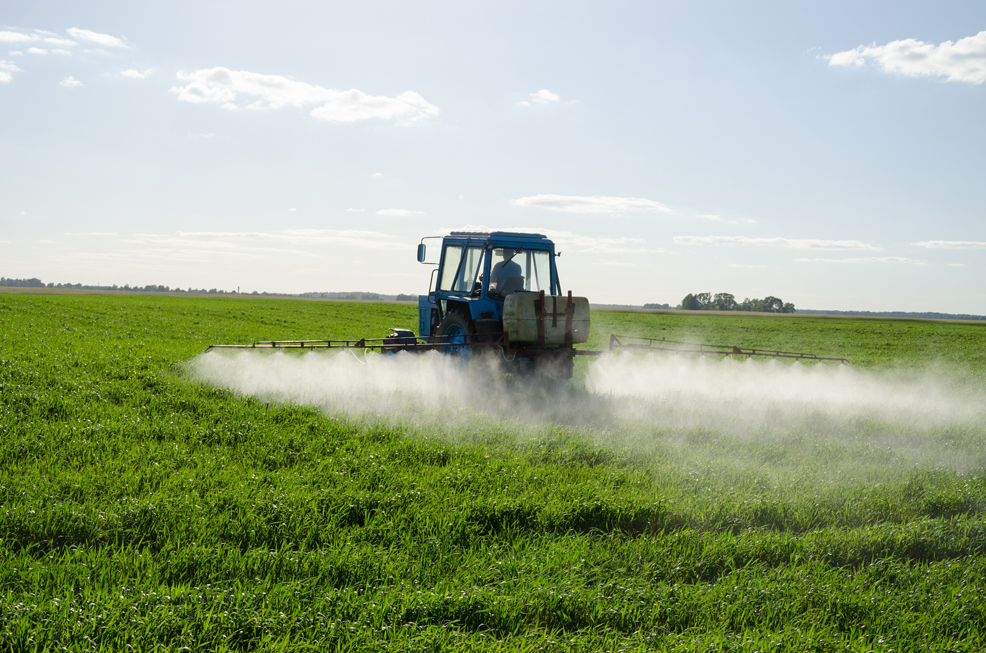A few years ago, I wrote a review of a study that linked pesticide exposure to attention deficit hyperactivity disorder (ADHD) in children. After interviewing one of the authors of the study, I called both my daughters and told them to switch to all organic fruits and vegetables for their children.
The Risks
The study was done by researchers at the Harvard School of Public Health and published in the journal Pediatrics. The researchers looked for residue from organophosphate pesticides in the urine of over 1,000 children between the ages of 8 to 15 years of age. Children with higher than average levels of the pesticide in their urine had double the risk of ADHD compared to children with undetectable levels.
One of the researchers was Marc Weisskopf, PhD. He told me that the study was not that surprising since organophosphate pesticides work by attacking the nervous system and previous studies had found lower IQs in children exposed to these pesticides.
Since that study came out in 2010, another major study has linked the same pesticide to autism. The CHARGE study, published in the journal Environmental Health Perspectives, found that women who lived within one mile of an agricultural pesticide application site during pregnancy had a 60 percent increased risk of giving birth to a child with autism. The study was published in 2014.
These along with other studies make a very good case for avoiding pesticide exposure in young children and during pregnancy. According to The American Pregnancy Association, at least seven major medical journals have now published reports linking pesticide exposure during pregnancy to birth defects. In 2012, the American Academy of Pediatrics reported that pesticide exposure in early life increases a child’s risk for cancer, brain disorders, and behavioral problems.
The Case for Organic Produce
Organophosphate pesticides are the most common pesticides used on fruits and vegetables grown in the United States.
- Of over 3,000 fruits and vegetables sampled by the U.S. Department of Agriculture in 2013, almost two-thirds had had pesticide residues.
- A 2015 study from the University of Washington School of Public Health found that people who eat organic fruits and vegetables have less organophosphate pesticide residues in their urine. The study included 4,500 people in six U.S. cities.
Avoiding pesticides in your produce may be more expensive but it is not complicated. Just look for the USDA Organic label. Food can’t be certified organic if it was grown in soil that was treated with any pesticide in the last three years.
Tips to Protect against Pesticides
- Do not use any pesticides inside or outside your home during pregnancy. Keep your children away from any areas that have recently been treated with pesticides.
- If you are pregnant and live near an agricultural site where pesticides are sprayed, consider removing yourself from the area during the first eight weeks of pregnancy.
- If you can’t afford or can’t find organic produce for yourself and your children, consider produce that has been found least likely to have pesticide residue by the Environmental Working Group.
- These “clean fifteen” include: sweet potatoes, avocados, cauliflower, sweet corn, eggplant, cabbage, frozen sweet peas, onions, asparagus, cantaloupe, grapefruit, pineapple, mangoes, papaya, and kiwis.
- Avoid produce that has been found most likely to have pesticide residue.
- This “dirty dozen” includes: apples, peaches, nectarines, strawberries, grapes, potatoes, celery, imported snap peas, sweet bell peppers, spinach, cucumbers, and cherry tomatoes.
- Wash all produce completely.
- Cooking does reduce pesticide residue.
Let us know your thoughts on this in the comments’ section below!

